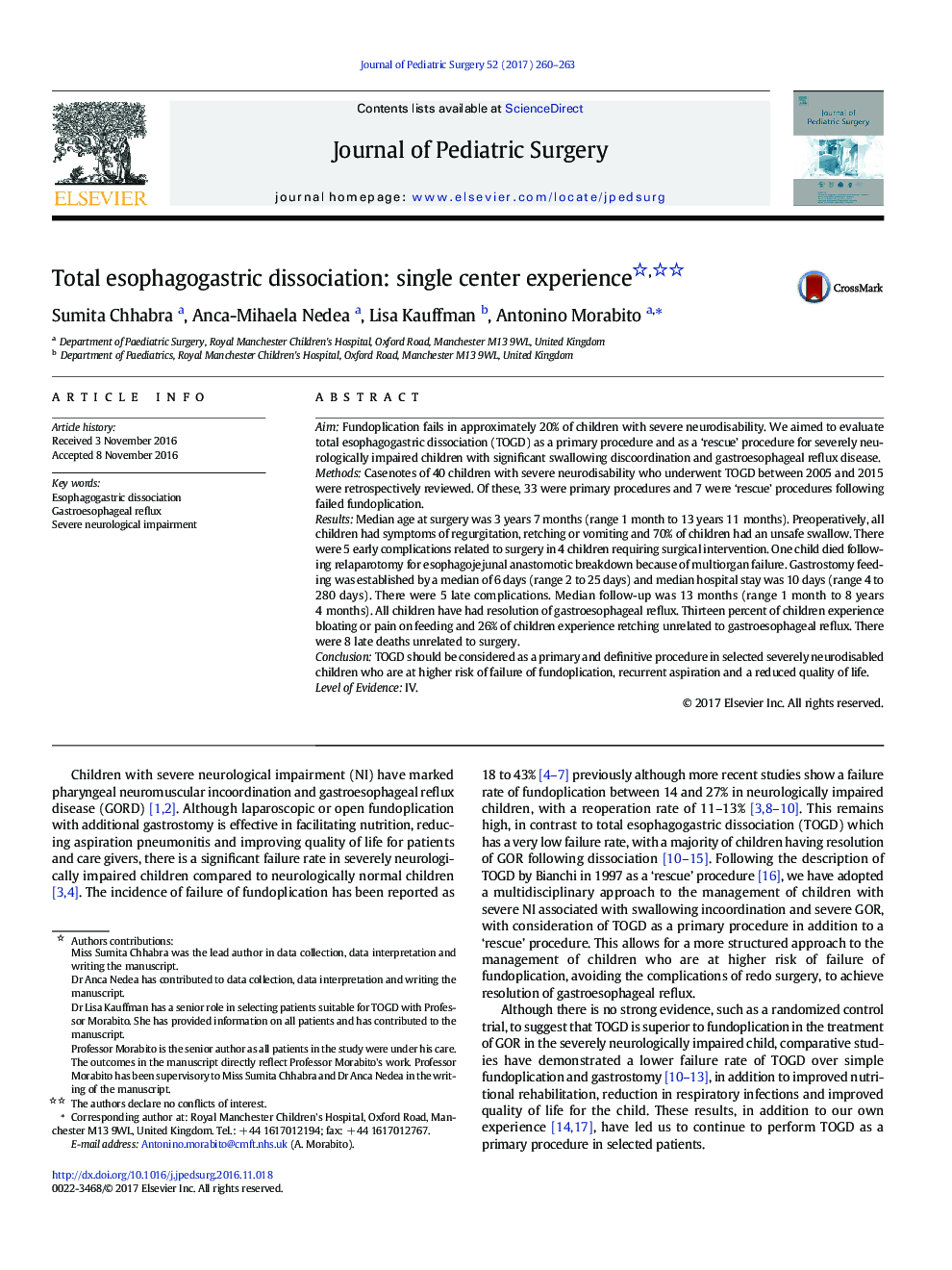| Article ID | Journal | Published Year | Pages | File Type |
|---|---|---|---|---|
| 5718411 | Journal of Pediatric Surgery | 2017 | 4 Pages |
AimFundoplication fails in approximately 20% of children with severe neurodisability. We aimed to evaluate total esophagogastric dissociation (TOGD) as a primary procedure and as a 'rescue' procedure for severely neurologically impaired children with significant swallowing discoordination and gastroesophageal reflux disease.MethodsCasenotes of 40 children with severe neurodisability who underwent TOGD between 2005 and 2015 were retrospectively reviewed. Of these, 33 were primary procedures and 7 were 'rescue' procedures following failed fundoplication.ResultsMedian age at surgery was 3Â years 7Â months (range 1Â month to 13Â years 11Â months). Preoperatively, all children had symptoms of regurgitation, retching or vomiting and 70% of children had an unsafe swallow. There were 5 early complications related to surgery in 4 children requiring surgical intervention. One child died following relaparotomy for esophagojejunal anastomotic breakdown because of multiorgan failure. Gastrostomy feeding was established by a median of 6Â days (range 2 to 25Â days) and median hospital stay was 10Â days (range 4 to 280Â days). There were 5 late complications. Median follow-up was 13Â months (range 1Â month to 8Â years 4Â months). All children have had resolution of gastroesophageal reflux. Thirteen percent of children experience bloating or pain on feeding and 26% of children experience retching unrelated to gastroesophageal reflux. There were 8 late deaths unrelated to surgery.ConclusionTOGD should be considered as a primary and definitive procedure in selected severely neurodisabled children who are at higher risk of failure of fundoplication, recurrent aspiration and a reduced quality of life.Level of EvidenceIV.
